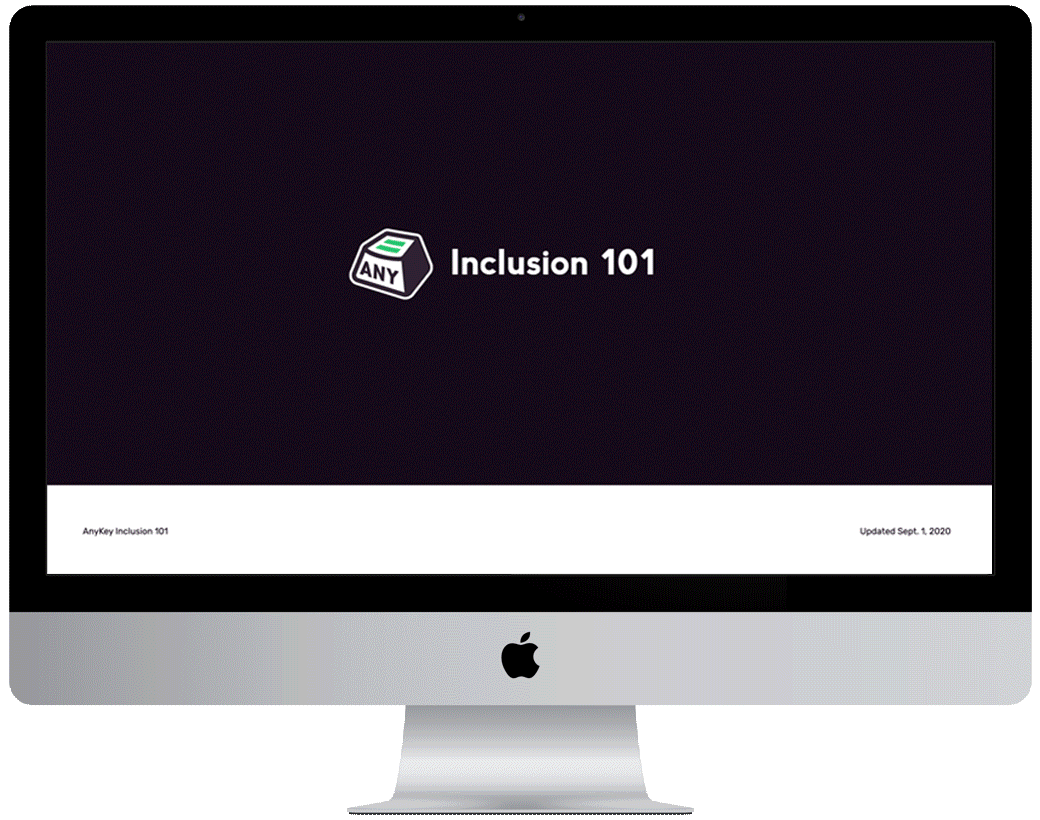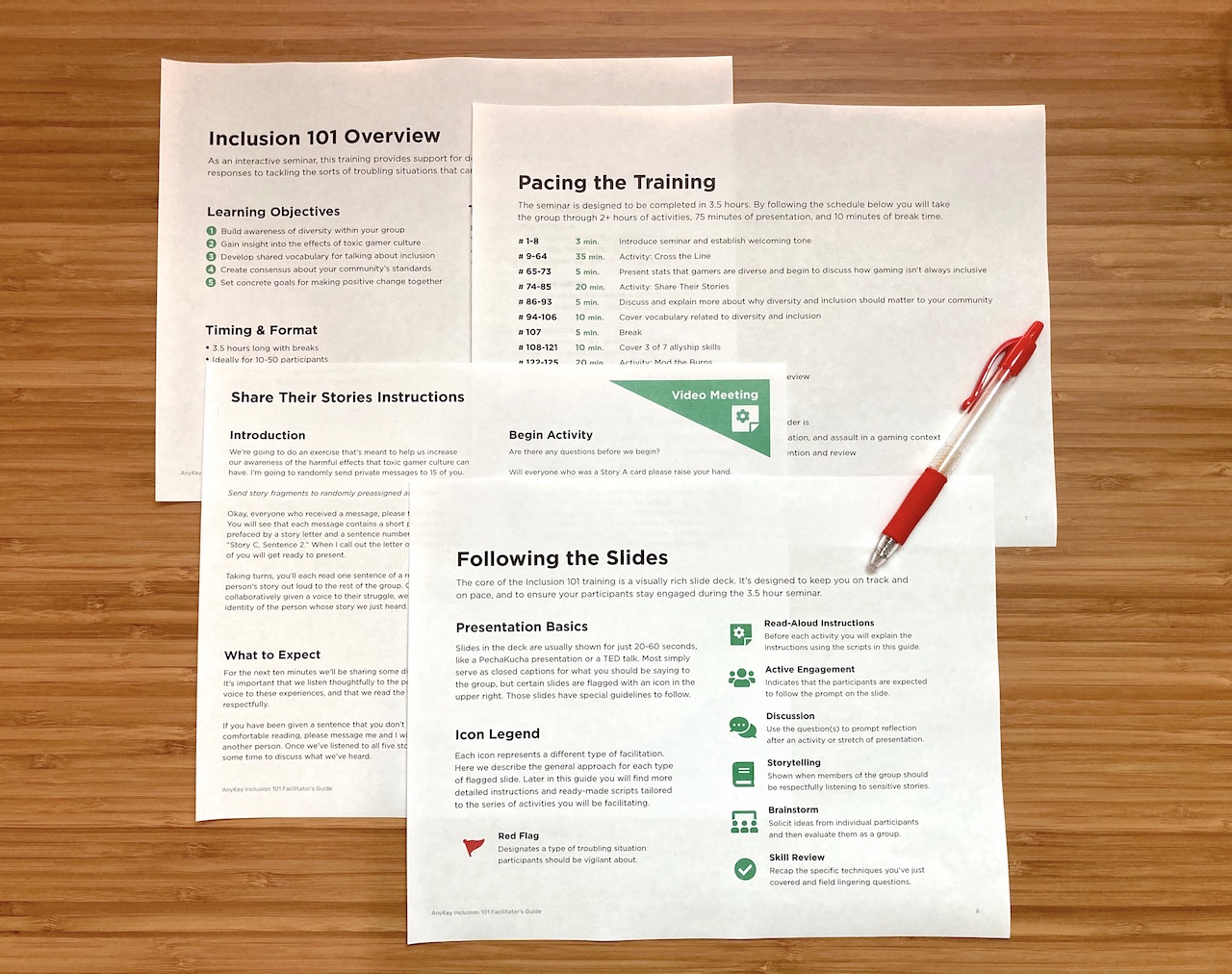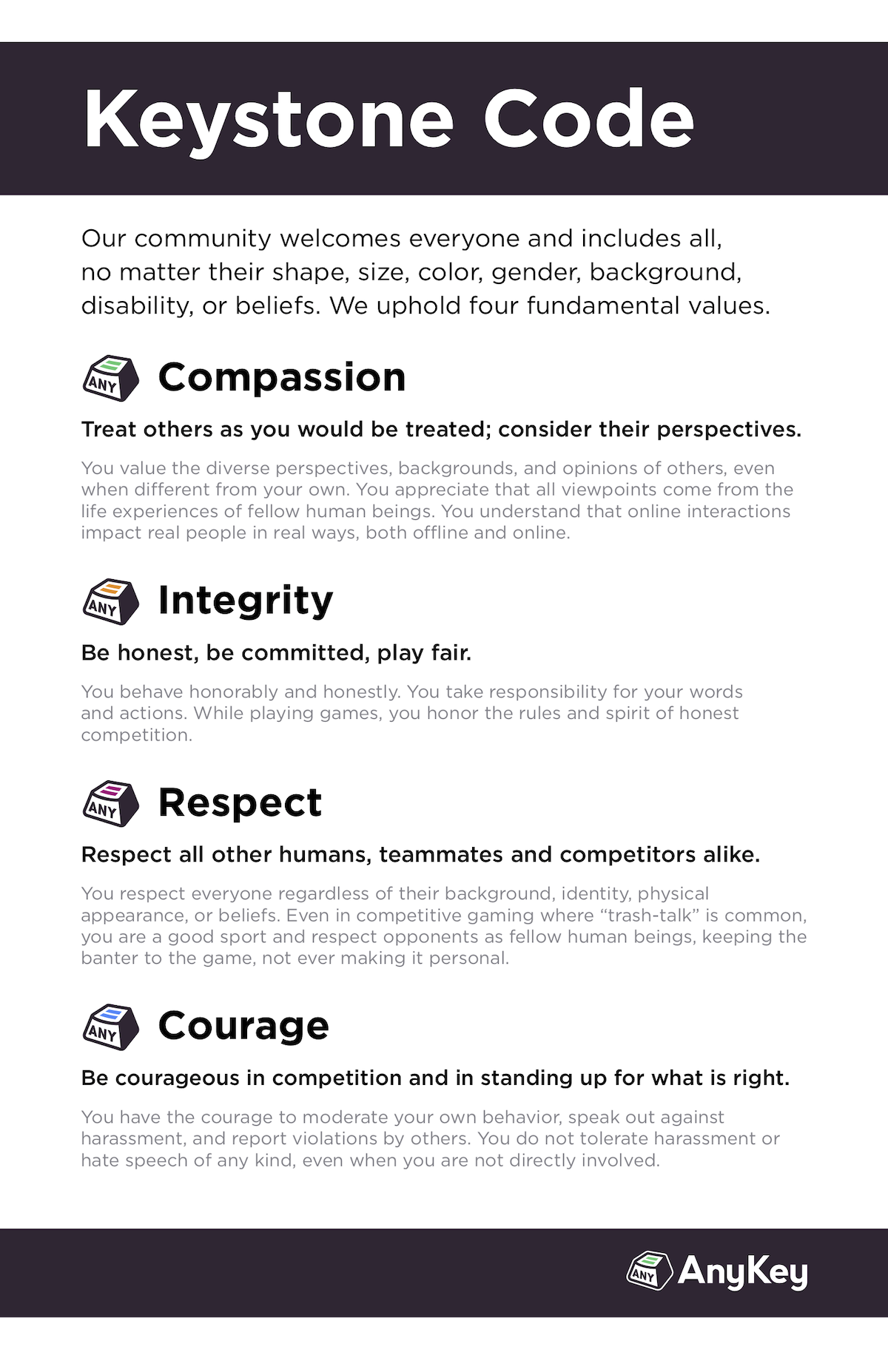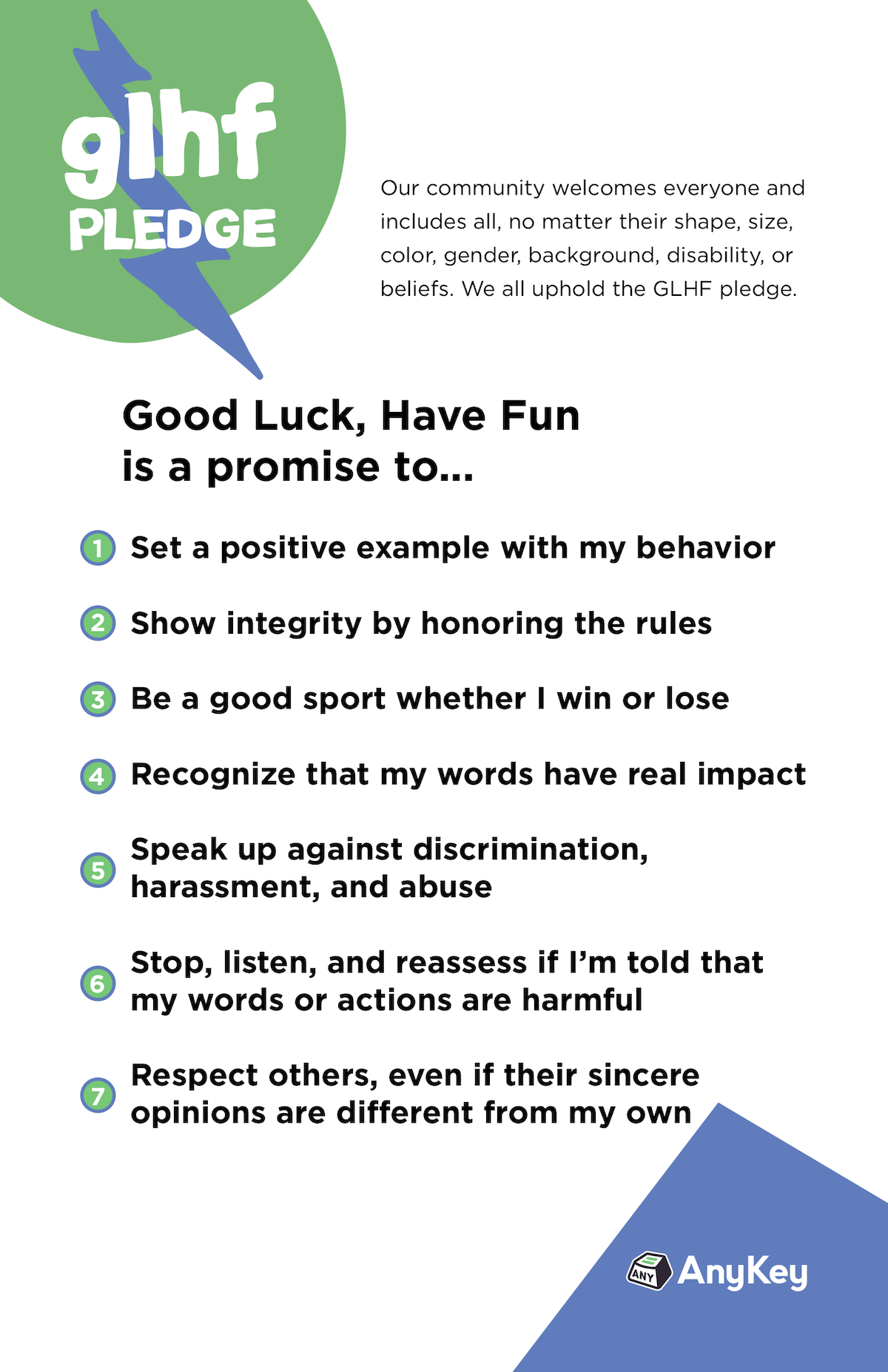AnyKey created Inclusion 101 with folks from a wide range of gaming groups in mind. This guide is for professional esports players, college varsity teams, intramural clubs, tournament admins, event producers, stream squads, and more.
We offer online training and downloadable materials designed to foster inclusion in any group that is united by their shared focus on gameplay.
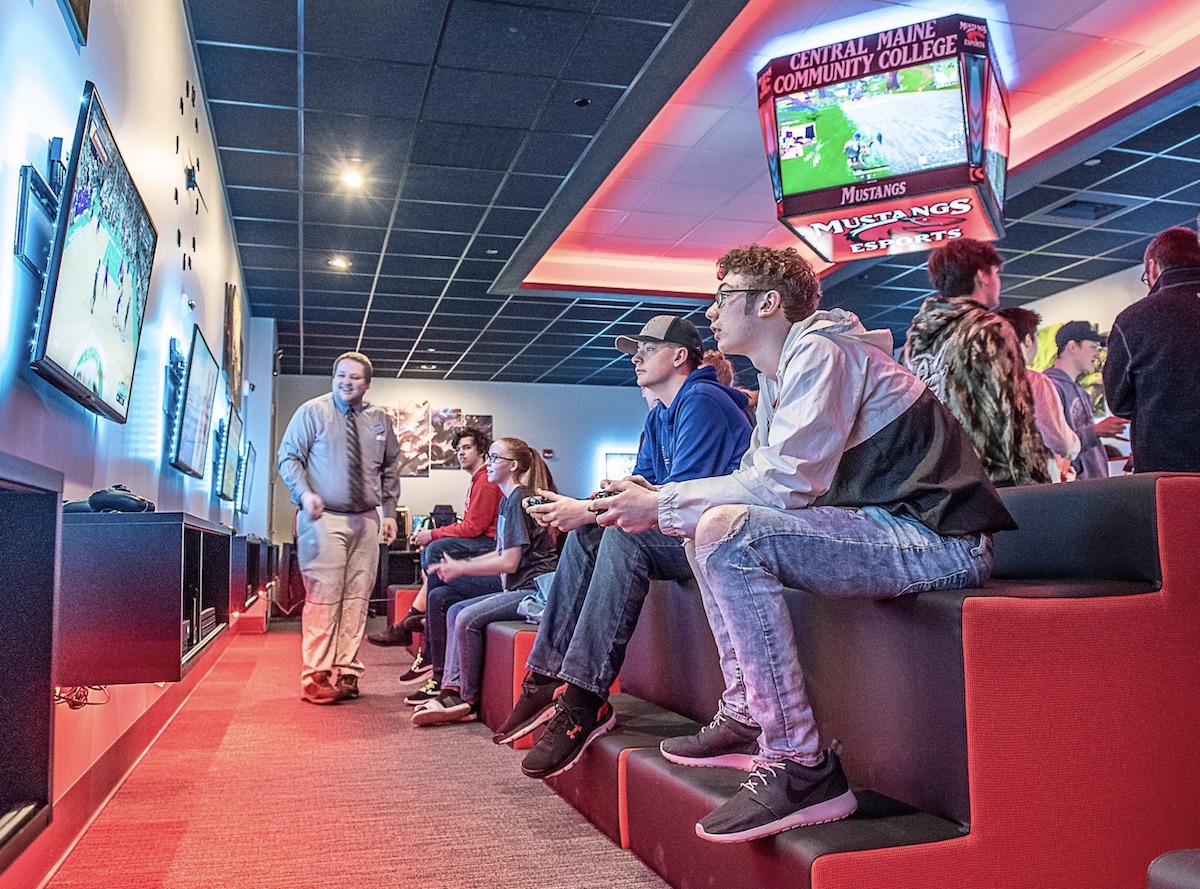
As you build and grow your inclusive gaming group there are five critical issues that you should be on the lookout for. Whether your club has a long history or you are just getting started, you should be on the watch for these red flags.
Game companies and third party groups often lead how gaming clubs develop. Some can be predatory, prioritizing their profits over your community's needs. Watch out for companies that help "analyze your gameplay" or recruit talent.
Commercial success has become the primary purpose of many groups. Aiming to go pro is fine but so are values-based and amateur clubs. Commit to making the quality of your community your first priority.
Many groups form around games for personal computers. Yet data shows that getting to use a PC depends on economic factors. Don't overlook folks who've only played on consoles or mobile phones.
Increasing participation from women & non-binary folks is now a priority for gaming clubs. Gender inclusivity is essential but it shouldn't be your sole focus. Remember that diversity refers to race, sexuality, and disability too.
Marginalized folks face serious obstacles when trying to participate in gaming groups. They often lack equipment, games, like-minded peers and representative role models. Discrimination and harassment further compound that social isolation. If you're not actively working to knock down these barriers, it’s likely you're accidentally keeping them in place.
Confront the critical issues by implementing AnyKey's best practices for creating an inclusive gaming group. For a deeper understanding you can download our recent research report on the topic or read a shorter article summarizing the findings.
Download Whitepaper Diversity & Inclusion in Collegiate Esports: Challenges, Opportunities, and Interventions Read Article 12 Best Practices for Diversity and Inclusion in Collegiate EsportsRunning a gaming club can be overwhelming so we've developed some clear steps to infuse comfiness into your group's core.
No matter if your group is long-running or brand new, you should appoint a diversity & inclusion leader for your team. Someone must be responsible for overseeing the initative and infusing inclusive principles from within. Your D&I leader should have the authority to shape your club from the core and not just be bolted onto the side of operations as an afterthought.
Honestly assess your club's current level of inclusiveness. Beyond gathering raw participation numbers, remember to thoroughly review your public materials, language, policies, and unspoken community norms. A meaningful survey includes active members of your club, folks in the fringes, and those no longer participating.
Try to have a third party perform an objective audit for you. If your group is associated with a school, ask your Title IX office for help. Otherwise, you can reach out to organizations like AnyKey that provide D&I consulting services. If you want to self assess, you can ask about using our audit rubric to structure your internal review.
Your group's D&I leader will be responsible for guiding the other members so you should make sure they are adequately prepared. Regardless of their background or personal experiences, it's important that they receive formal training for the job.
If you’re at a school, look for courses from Title IX, student affairs, or campus life. If you’re at a large company, your HR department may have resources. If you’re independent or need more help than your institution provides, AnyKey offers a live stream series as well as a more intensive training for Inclusion 101 facilitators.
Establishing a code of conduct signals your values and sets a shared standard of behavior for your community. After your D&I leader is trained, they should guide the group through the process of adopting an approachable and relevant CoC. AnyKey provides starter versions of the Keystone Code and GLHF Pledge that anyone is welcome to use and adapt.
Once you've established your CoC, the next step is to publish it on your website, IRL spaces, and social media. It should be highly visible, or better yet, mandatory for all members to sign. Make sure you provide a straightforward mechanism for folks to report problems and outline clear procedures for handling violations.
When ready, your D&I leader should begin training the group. Be sure they cover proactive topics (allyship & media representation) and reactive measures (bystander intervention & CoC violations).
AnyKey offers a downloadable version of our Inclusion 101 curriculum that anyone can use to conduct a seminar about diversity and inclusion in gaming. We provide a rich slide deck and a detailed facilitator's guide suitable for an online or IRL training.
Though it may seem like a big step, we think it’s important to have a member of your own community lead your training seminars. Having an outsider come and impose something on a group never sticks. It's up to you to level up and be the change you want to see in the world. AnyKey is here for support. You've got this.
Are you curious about what the downloadable curriculum contains? Take a peak at the materials we've designed.
The core of the Inclusion 101 training is a visually rich slide deck. It’s designed to keep the group's facilitator on track and on pace, and to ensure their participants stay engaged during the seminar.
This training is designed specifically for gaming groups like professional esports leagues, college teams, intramural clubs, tournament admins, event organizers, stream squads, developers, and more.
Like a Dungeon Master's Guide the manual for Inclusion 101 has been written for a range of readers who might find themselves in the role of diversity and inclusion leader of their group.
If you've got the authority and enthusiasm to increase the inclusiveness of your gaming group, then this guide is for you.
Creating a CoC from scratch can be challenging, but it's a crucial part of reinforcing the lessons from the training. To give you a kick start, we have two download packages available.
We welcome all individuals and organizations eager to join with the hundreds of thousands of fellow gamers who've adopted our Keystone Code and GLHF Pledge.
Fostering inclusion in gaming groups is about making change from within. But real change takes time. The more effort you put in, and the more you work as a team, the more meaningful progress you’ll make.
